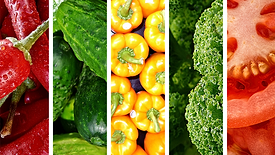Management
Top Food Safety Priorities—Where are We Post-Pandemic?
There is still evidence in the economy and in our food industry of a "hangover" from the pandemic that we have not yet fully cleared
August 8, 2023
Never miss the latest news and trends driving the food safety industry
eNewsletter | Website | eMagazine
JOIN TODAY!Copyright ©2025. All Rights Reserved BNP Media.
Design, CMS, Hosting & Web Development :: ePublishing











.jpg?height=168&t=1691503719&width=275)